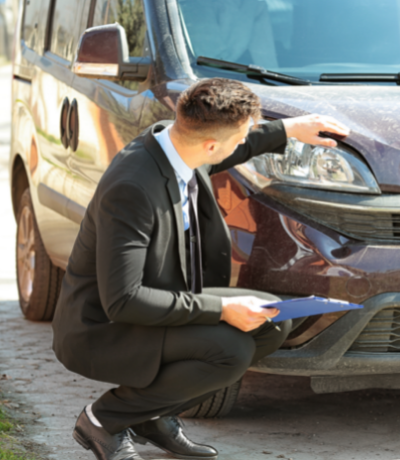Hidden Fees and Fake Numbers: The Latest Rental Car Scams
1 November 2024
When did renting a car become so complicated and risky?
While traditional rental car companies still provide an essential service for millions of travelers, the rise in rental car scams and hidden fees has made what was once a straightforward transaction into something that requires vigilance and careful documentation.
it doesn’t help that when travelers are picking up and/or dropping off a rental car, they’re often in a rush, carrying heavy bags, juggling water bottles and backpacks and kids. It’s a recipe for disaster or fraud.
Recent reports of fraudulent phone numbers, fake websites, and dubious cleaning charges have left many travelers feeling vulnerable and frustrated. Understanding these risks and knowing how to protect yourself has become as important as knowing how to drive the car itself.
Here’s a review of the latest rental car scams to watch out for on your next trip!

Watch out for this rental car phone number scam
The most recent rental car scam is super hard to spot! It goes like this:
- You want to rent a car in let’s say Chicago and you pull out your phone and search for your favorite car rental company in that city.
- You call the phone number and reserve a car, giving the person on the line your credit card info, etc.
- When you show up at the rental car counter though – there’s no reservation in your name and your credit card has been charged.
When you Google for a number and the company name and map appear, it all looks familiar, but it’s a fake company. You may even receive a confirmation email (you gave them your email address after all) with a company logo on it – it all looks legit. But, there are a number of recent reports of this exact scenario happening:
- Scammed out of $800 for a car rental in Atlanta
- Scammed out of hundreds of dollars renting a car in Nebraska
How to avoid this scam:
- Beware of companies offering large discounts or claiming to have special partnerships with unusual payment methods, like paying with gift cards.
- Never click links or call phone numbers from unsolicited rental car texts and emails. Those are malicious and put you in direct contact with scammers.
- Instead, go directly to the company website and make sure that https:// displays in the URL or click this icon to see who owns the website (About this page):

Watch out for the rental car cleaning scam
This one isn’t new but it’s still around and appears to be going strong. It goes like this:
- You return a rental car, an employee hops in, notes the mileage and gas level and you go your merry way.
- You check the bill later and notice odd charges labeled “other” or “cleaning fee” and sometimes these charges are quite high.
- You contact the rental car company and are told something that backs up their fee claim.
When you rent a car, you sign a rental agreement which typically mentions the company will charge for cleaning what they determine is excessive stains, trash, dirt, or pet hair. The issue comes when you didn’t leave the car in a messy condition, and there are a number of reports of when that has happened:
- Charged $450 for cleaning pet hair when the driver didn’t have a pet
- Charged an extra $50 for “other” due to a tobacco smell when the driver doesn’t smoke
How to avoid this scam:
- Always take pictures of the rental car – inside and out – before you leave the lot and when you return it.
- Take a few minutes to clean the car before you drop it off: remove all the trash, shake out the mats, etc.
- If you have any concerns about the condition of the vehicle, ask an employee to inspect it when you return it and get them to sign off (at least get the employee’s full name).
Chris Elliott notes that car rental companies will now add extra charges to a bill simply because they can, and if you don’t notice, they get away with it.
Watch out for the refueling scam
What’s old is now new again, and this one has been revived recently. It can look like this:
- You return the car after filling the tank to above Full on the gauge a short distance from the rental center. Later, you notice an extra charge on your credit card for refueling a few gallons.
- You receive a vehicle upgrade (compact to SUV, for example) and the paperwork says the tank is 75% full. When you return it with the tank at the same level you received it, you’re charged a hefty refueling fee.
We all know that gas is expensive, and even if the car rental companies get a few of these fake charges through, they’re making a buck or two. Worse for the consumer, the gas stations nearest the car rental places have the highest per-gallon prices!
How to avoid this scam:
- Fill the tank to full where you can get cheaper gas, then top it off closer to the rental place.
- Keep your gas refueling receipts.
- Take a picture of the gas gauge before you return the car.
- Check the bill and check your credit card later too!
Watch out for the rental car damage scam
Another oldie but goodie, as they say – this one is terribly familiar to most travelers. It looks like this:
- You return the car and head to the airport, thinking things are just fine.
- Later, you get a repair bill for some recently noticed damage.
I don’t know about you, but I’ve personally witnessed big pileups of rental cars tucked very close together at some rental lots, especially at busy return times.
There’s no proof that the damage was caused while you had the car in your possession without photographic evidence, but you won’t get much in the way of proof from the rental company (and they could be filming any car on the lot).
This is why you have to spend time filming the vehicle (inside and out) before you leave the lot and when you return the car. You also have to keep that evidence for a longer time than you might expect because rental companies are now sending bills 6-9 months later!
Related topics
Damian Tysdal is the founder of CoverTrip, and is a licensed agent for travel insurance (MA 1883287). He believes travel insurance should be easier to understand, and started the first travel insurance blog in 2006.
